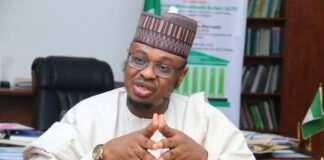Unraveling the Web of Misinformation and Disinformation on the Internet In My Community
By Sadiya Lawal Danyaro
In the digital age, the internet has become an indispensable part of our lives, transforming how we communicate, access information, and engage with the world. While it offers numerous benefits, it also presents a significant challenge: the proliferation of misinformation and disinformation. These twin adversaries, often used interchangeably, seriously threaten our society, affecting everything from public health to democracy.
Misinformation and disinformation about health issues, such as pandemics of Ebola and COVID-19, have raised serious concerns in my community due to misinformation and disinformation. Some were saying to mitigate Ebola, you have to wash your body with salt, while others see COVID-19 as a pandemic created to reduce our population and make us poorer.
Disinformation campaigns have the power to influence political outcomes by swaying public opinion. The spread of false narratives can undermine the democratic process and trust in institutions. In my community, you heard them saying false information about a politician created by the opposition, and people in my community will take it like that without verifying, which has also led to serious fights among the community members.
Misinformation can also affect the economy. False rumors or fake news about companies can lead to stock price fluctuations, causing financial harm. There was a time when my community boycotted certain products due to misinformation created by someone.
We can combat Misinformation and Disinformation in the following ways:
Promoting media literacy is important to help individuals critically evaluate information sources.
Education and awareness programs can teach people how to identify credible sources and fact-check information.
During public health emergencies (COVID-19, EBOLA), authorities should communicate clearly and consistently to counteract misinformation.
Combating misinformation and disinformation requires cooperation between governments, tech companies, civil society, and individuals. A united effort can more effectively curb the spread of false information.
During my engagement with the community, the community leaders, youth leaders were in attendance, where I discussed on how we can identify credible sources and fact checking information.
Sadiya Lawal Danyaro is a Digital Grassroot Ambassador cohort 6
















